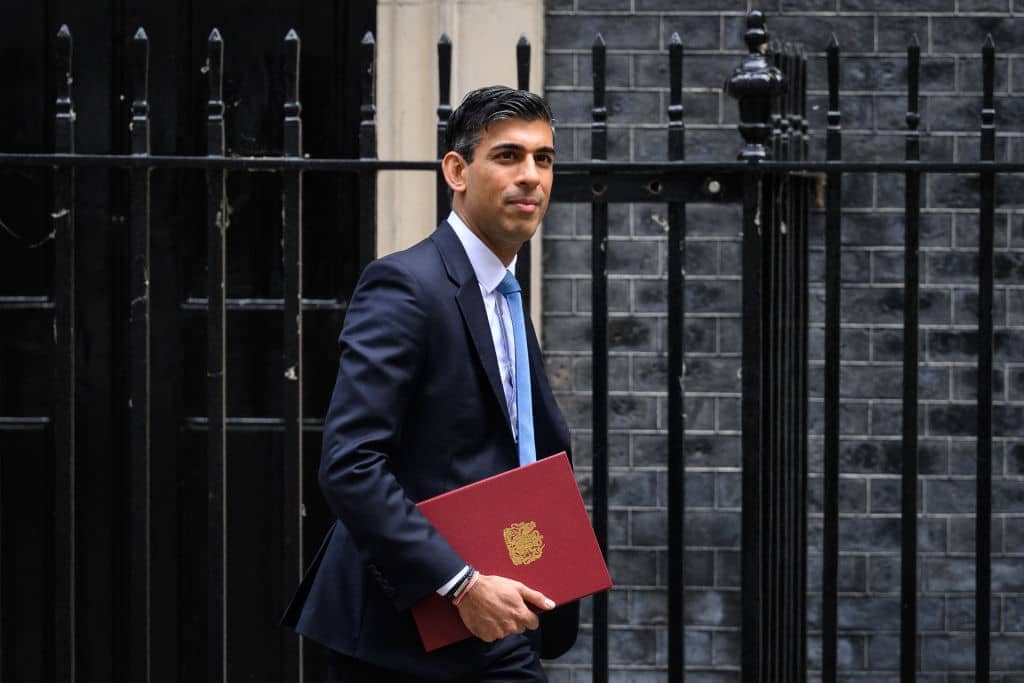It was only three months ago that Chancellor Rishi Sunak was announcing a £9 billion support package to help people with their energy bills – which totalled £350 worth of support for most households. At the time there were calls for the Chancellor to go further, but he explained that he could not shield the public from every price hike, or pretend adjustment didn’t need to take place. It would be ‘wrong and dishonest,’ he said.
Those appeals have not worked out. Households are feeling poorer and poorer as prices continue to shoot up month-on-month. So Sunak has announced today a staggering £15 billion support package, changing and adding to the schemes he laid out in February.
The headlines include doubling the energy bills discount – administered through an Energy Bills rebate – from £200 to £400 for every household. He has also scrapped the loan aspect of the rebate – the original scheme would have seen households repay the discount in instalments over five years, turning it into a grant instead.
Rishi Sunak is on track to take the tax burden to a 77-year-high by 2025
On top of these updates, the Chancellor announced £9 billion worth of new spending which will come in the form of direct, one-off payments, as follows:
- A £650 payment to the 8 million low-income households who have the state ‘supporting their cost of living through the welfare system’.
- A £300 payment to pensioners through the winter fuel allowance.
- A £150 payment to individuals on disability benefits.
The Chancellor put heavy emphasis on the eight million most vulnerable households which will be receiving an extra £1,200 this year – a sum that is roughly on par with one of Joe Biden’s stimulus cheques. So how will he pay for it?
Most controversially, the Chancellor has announced a 25 per cent ‘energy profits levy’ on oil and gas companies. It’s a snazzy way of saying ‘windfall tax’, which had been repeatedly criticised by the Chancellor in the months leading up to today’s statement, arguing previously that ‘the obvious impact of a windfall tax would be to deter investment,’ and agreeing with colleagues’ arguments that such a tax would ‘undermine competition’ and ‘kill off jobs’.
In recent weeks, Sunak started hinting that a windfall tax wasn’t off the table, hoping it could encourage businesses to invest more. Still, it’s difficult to paint the tax as anything but a sharp U-turn from the Chancellor, who insisted to Tory MPs after his Budget last autumn (and the announcement of the National Insurance hike), that his main focus would be cutting taxes – that ‘every marginal pound should go on cutting taxes rather than spending’.
But today Sunak called this a ‘pragmatic’ policy, noting that a ‘sunset clause’ will be written into the legislation, kicking in when prices return to historically more normal levels. Moreover, the levy is set to include an 80 per cent ‘investment allowance’: in simple terms, the more profits that are invested back into their company, the less tax they’ll have to pay through the levy. By the Treasury’s calculations, the tax will raise £5 billion this year, notably higher than the £2 billion Labour wanted to raise.
But none of these points tackle the Chancellor’s growing reputation as a tax-hiker. He’s on track to take the tax burden to a 77-year-high by 2025, and today’s windfall tax is yet another levy he’s added to the books.







Comments